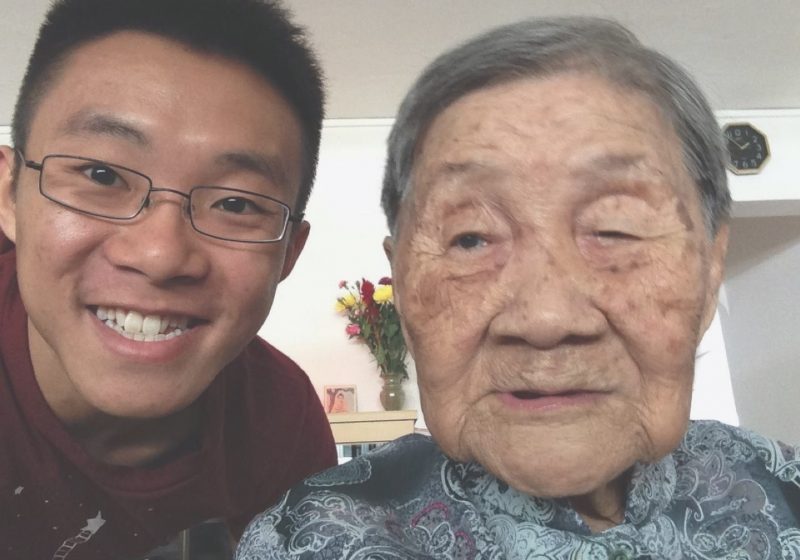Caring for a loved one with dementia often comes with an immense amount of challenge and responsibility. As a caregiver, you too need to protect your overall well-being. Here are 5 ways to cultivate daily mindfulness as a caregiver.
By Cheryl Bok

While speaking with caregivers from all age groups and walks of life, a common phrase they would repeatedly or perhaps, unknowingly mention is, “I don’t know what to do anymore.”
Caring for an ageing loved one comes with an immense amount of challenge and responsibility. A caregiver often needs to manage one crisis after another, from the start to the end of the day, until they finally get a wink of sleep at night.
Some caregivers allow their worries to take over as they often wonder what will happen if their loved one’s condition deteriorates or if they are living up to family expectations as a carer. These ruminations can seriously affect a caregiver as they unconsciously build frustration, bitterness and chronic stress which may inevitably lead to mental or physical health conditions.
Today, I would like you to declare, it does not have to be this way for me.
As a caregiver, you too need to protect your overall well-being not just to go the distance, but for a clearer understanding and acceptance of the present moment. Instead of building frustration and darkness, find ways to build emotional strength and reduce stress during those moments.
“It does not have to be this way for me.”
Mindfulness has often been mistaken only as the formal practice of meditation, sitting still for about ten minutes per day. Your first thought would probably be, “How am I going to find the time?” Be comforted to know that mindfulness is not just meditation but cultivation of mindset to give attention to and being intentional in the present moment.
It gives you a sense of clarity and you can start with small steps to make you feel grounded.
“… mindfulness is not just meditation but cultivation of mindset to give attention to and being intentional in the present moment.”
Focus on yourself as you try 5 mindful moments as you care for your loved one throughout the day.
Mindfulness in the morning
While helping your loved one prepare for the day, perhaps a morning shower, oral hygiene or changing of diapers, ask yourself how do you feel this morning?
Do you feel a hint of backache from the manual transfer last night? Do you feel a mind fog as you did not sleep well? Do you feel a tightening of the chest due to the morning rush?
Identify any sensations, comfortable or uncomfortable. And if you feel amiss in the present moment, be sure not to think light of it. Schedule an appointment with your doctor, or perhaps take a power nap in the afternoon. Practice being present in your body.
Mindfulness during a meal
As you prepare a meal for your loved one, take some time to appreciate mindful eating with them.
Take a piece of their food (a small piece of carrot, a slice of fish) and chew it slowly. Pay attention to how the food tastes and how the texture feels on your tongue. Ask your loved one to experience mindful eating together with you and have them describe a piece of the food. Be conscious to take time and appreciate the meal with your loved one.
Perhaps, take a quick minute to make a cup of your favourite beverage. Experience how the warm mug curves gracefully in your palm.
Mindfulness during a walk
Take this opportunity to go for a stroll with your loved one. Bring along a spray bottle and water the plants along the corridor. As you walk with your loved one, also place focus on yourself by taking a deep breath of fresh air every ten steps.
Take a moment to stretch your vision and see as far as possible, did you notice any differences in the scenery today? Hold your loved one and share with him or her on the differences, or a new flower in the garden. Indulge, as you slow down and appreciate nature together.
Mindfulness during home routines
If you tend to hand-wash your loved one’s clothes, take time to feel the warm water on your hands and slowly hang the clothes out to dry.
As you turn on lights when you enter rooms, invite a positive thought with the light and when you turn them off, release a negative thought.
As part of daily care while applying moisturising cream for your loved one, apply some for yourself too (if it is not medicated) and massage it into your fingertips and palms. If it is scented, together with your loved one, take deep breaths and enjoy the fragrance.
Fold your loved one’s or your laundry neatly and thoughtfully before you put it away, you can try Marie Kondo’s technique or even invent one that is fully your own!
Mindfulness before sleep
Put away all tech devices and be sure to turn off the television. Ask your loved one if the height of the pillow is comfortable, make adjustments and engage in gentle eye contact as you say good night.
Time for your rest. Try spraying a lavender sleep spray to make your sleep deep and worthwhile, even if it is just for a couple of hours. Before you sleep, place your hand to your heart and thank yourself for getting through the day, show gratitude, empathy and patience to yourself.
“…thank yourself for getting through the day, show gratitude, empathy and patience to yourself.”
By being mindful and intentional about the care that you are providing, you can also catch yourself when you are overthinking or overworking yourself. These steps have stress reduction benefits which will go far beyond improving care. Practicing mindfulness is not just for the privileged and it is not always the same for everyone.
Feel free to customise your thoughtful moments and embrace it comfortably. There should not be any tension or extra “work” for you to be mindful. Even if it is for just a brief moment, do it every day and you will be giving yourself the most valuable gift: a whole, healthy mind and body.






























